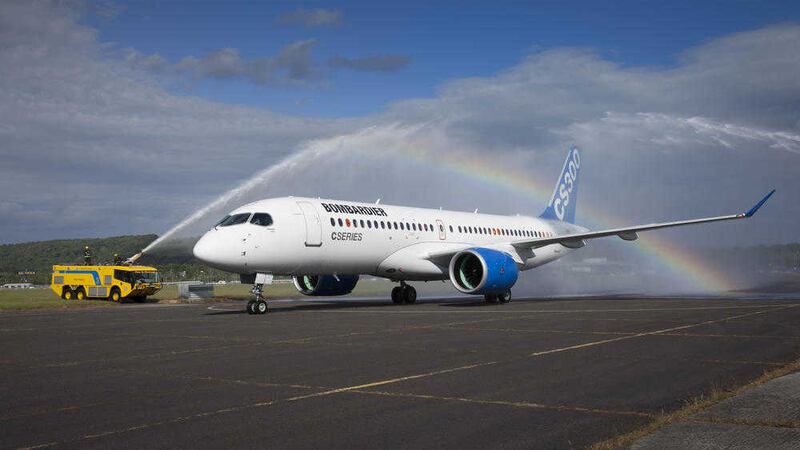WHEN David Cameron was in town for the Northern Ireland Investment Conference in 2013, he used the visit to open Bombardier's new wing facility in Belfast.
The 600,000 sq ft centre was built specifically to satisfy the anticipated demand for the manufacturer's new CSeries aircraft.
Amid a blaze of publicity the prime minister cut the ribbon on the plant which - it was suggested - would help grow the company's Belfast workforce to well over 6,250 by the end of 2014.
The CSeries was supposed to provide an alternative to Bombardier's main rivals Boeing and Airbus.
But orders for the planes, which promise the greenest - and quietest - way of taking to the air, have failed to live up to expectations.
When asked last week if he'd consider buying any, Dublin-born International Airlines Group chief executive Willie Walsh said he would, if they hadn't been so small.
And it isn't just slower orders that has so far scuppered the CSeries.
The entire project has been over budget and experienced huge delays in testing.
Bombardier had planned to spend $3.5 billion (£2.5bn) between 2008 and 2013 developing the aircraft, but is likely to overshoot that by at least $2bn (£1.4bn).
According to US aviation consultancy Leeham Co, it means the company will lose $32m on each of the first 50 CSeries planes it builds.
The first commercial flight is finally expected to take to the air later this year - two years behind schedule.
Such was the financial black hole facing the firm, Bombardier even entered talks with rival Airbus in a plea to prop up the ailing project.
When that fell through, the Quebec government put up $1bn to bail the firm out.
Whatever the problems facing Bombardier, it - like other manufacturers - must contend with global economic factors largely out of their control.
Tyre maker Michelin blamed the availability of cheaper imports for its decision to stop production in Ballymena, with the loss of more than 800 jobs.
Meanwhile, JTI Gallaher's plan to close its factory - also in Ballymena, with a similar workforce - was influenced by the fact it could move to other parts of the world where production costs are lower.
When the Bombardier redundancies are added, it means the north's manufacturing sector will have lost thousands of high-end jobs in a few short years.
Attracting similar numbers to return, considering the investment in plant and equipment required for such large-scale operations, will be beyond even the most ambitious of manufacturing strategies.








